Taylor Sheridan, Redefining the West: One Story at a Time - Meet the creative cowboy behind "Yellowstone"
Near Montana's Bitterroot River, a postcard-perfect image of the American West, Kevin Costner was building a fire by tossing logs into a pit. "This is how you do it efficiently! You get everything close by," he told reporter Lee Cowan.
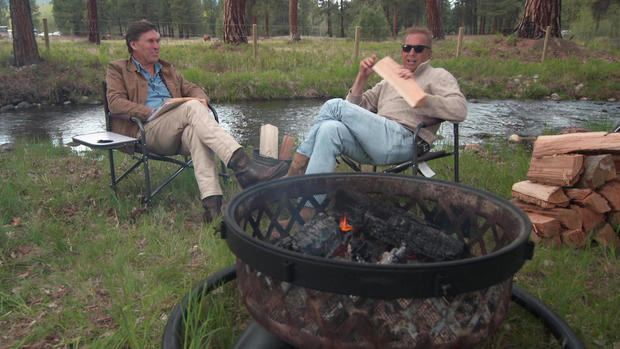
For the past five years, this valley has been his filming location – the backdrop for a modern-day Western that has become incredibly popular. "Yellowstone," a Paramount production (the parent company of CBS), was the most-watched scripted show on television last year. It's a drama as vast as the family it portrays.
John Dutton, a Montana rancher played by Costner, is a man who clings to the past while grudgingly accepting the present. Land – that's what Dutton sees as his legacy. Loyalty is his top priority. Imagine "Bonanza" meets "The Godfather."
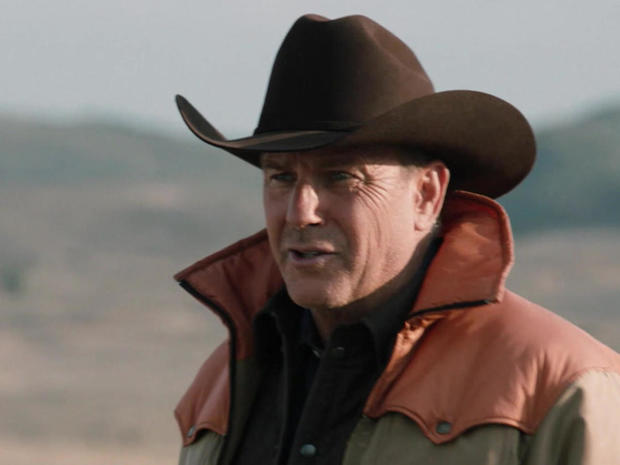
"We can get a little violent," Costner said of his TV family. "We're kind of like a slightly murderous group, our family – a little bit!"
"Yellowstone" is a reminder that our romanticized view of the American West is far from reality. Costner said, "The ranchers who came here weren't the rightful owners of this land. They basically joined forces and drove out the Native American population. It's still beautiful. But it's easy to forget the hardship, the things we can never fix."
To write convincingly about this world, you need to understand it deeply, and few people do that better than "Yellowstone"'s co-creator and writer, Taylor Sheridan. "I just make movies to pay for my horses," he told Cowan.
If Sheridan looks and acts like a horseman, it's because he is one. He can talk about riding and roping all day long, but otherwise, he's quite private. "Talking about myself is my least favorite thing," he said. "I say everything I want to say when I write a story."
His writing is clear and to the point, and he carries this directness over to the set as well. He said, "I don't run a very democratic operation. The script is the script. I don't tell actors how to perform; I don't need anyone telling me how to write."
And as a writer, he's considered one of the most important Western storytellers in recent times. He created "1883," the prequel to "Yellowstone," starring Faith Hill and Tim McGraw. It was so successful that there's now a sequel to that prequel, the upcoming "1932," starring Harrison Ford and Helen Mirren. "It's crazy that I get to work with these people," Sheridan said. "It's fantastically unbelievable."
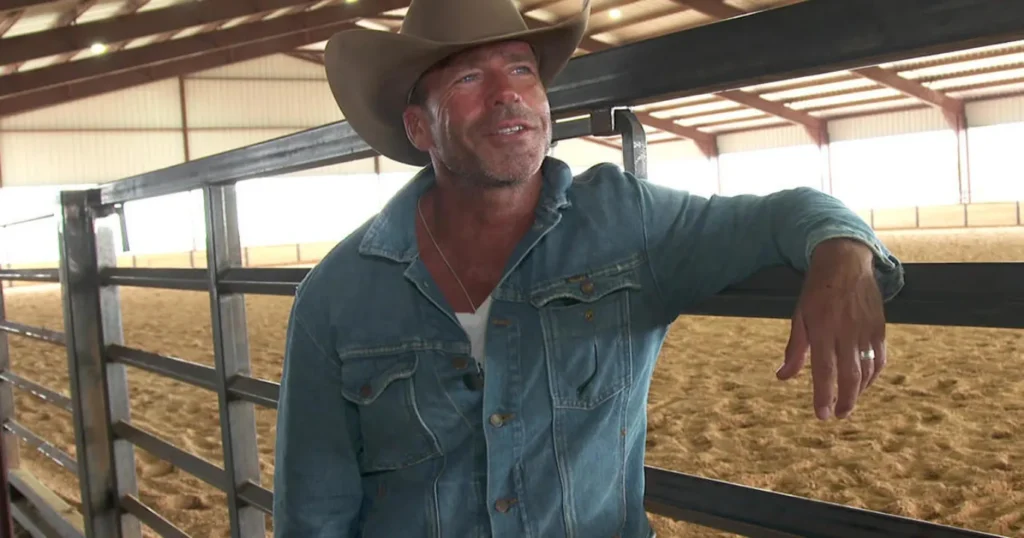
What you won't find in any of his works are stereotypical cowboy characters. It's easy to make a bad Western, Costner said; Sheridan has a special talent for making good ones.
"Westerns can seem really dumb and obvious," Costner said. "They're difficult to make, and that's the problem. It's hard to create a Western that people can connect with."
Sheridan connects with it so well because he lives it – he owns two ranches in Texas, and he actually supplies most of the horses for his productions himself. "Most of the horses used in our business are terrible," he said. "They aren't well-trained and not very safe, which is why you rarely see actors riding them. I didn't want that for our show. So, I bought all the horses for the show and then taught the actors how to ride them."
He couldn't find an actor skilled enough on a horse to play a horse-trader on "Yellowstone," so Sheridan played the part himself.
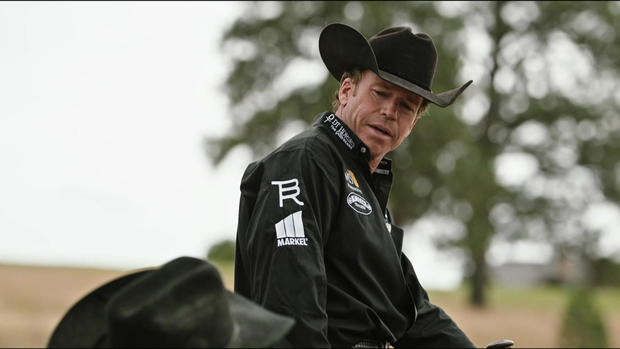
He got his start in Hollywood as a model. He later began auditioning, and over the years landed roles in shows like "Veronica Mars" and "Sons of Anarchy." But after more than two decades of trying, he never became a leading actor.
Cowan asked, "What kept you going in acting?"
"I think it was stubbornness, a refusal to give up," he replied. "An interesting thing about Hollywood is that if you let it get to you, if you listen to its negativity, it will tell you exactly what you should be doing."
How so? "I've never seen anyone fail after twenty years of persistence. It never happens. I've seen it take eight years; I've seen it take ten years. But never twenty."
"And were you approaching that point?"
"Well, I figured I'd top out at a supporting role."
"A friend offered me a writing project, not an acting role. I had no experience, but 15 years of observing what not to do in acting gave me some insight."
"I wrote the first episode of 'Mayor of Kingston' in ten hours. I deeply regretted not starting writing sooner."
From that point on, he churned out scripts at an impressive rate. Soon, he had written films like "Sicario," "Wind River," and the Oscar-nominated screenplay "Hell or High Water." Not bad for just his second script!
But when he pitched his idea for the series "Yellowstone," Hollywood wasn't interested. "Westerns are dead," they declared.
"Whenever Hollywood says a genre is finished," he countered, "it usually means they've made a bunch of terrible movies in that genre."
Chris McCarthy, a network executive, took a chance on "Yellowstone." "People think Westerns are all about clear-cut heroes and villains," he explained, "but this show is something completely different."
"It's far more intricate," another person added. "And much more captivating. In all my years in television, there haven't been many shows that resonate with both my teenage niece and my elderly aunt. This is one of those rare exceptions."
"The key is understanding the bigger picture," McCarthy continued. "He creates his own unique universe within the series. That's what sets him apart."
"So he writes about what he knows?"
"Absolutely. And he's incredibly talented at it."
Sheridan is now a prolific writer, with a staggering ten shows either airing or in development. His life is a whirlwind – and that's just his Hollywood career. He recently became a co-owner of a massive ranch in Texas, which means the hit factory needs to keep running to cover the costs.
"I was almost ready to retire," Sheridan admitted. "I had saved enough money. My goal was to be done by fifty."
But retirement wouldn't involve golf courses, he assured everyone. "Too much open space," he joked. "I'd just want to put cows on it!"
John Wayne once said that nothing is more discouraging for an actor than working long hours on brightly lit indoor sets. Kevin Costner shares that sentiment – the vast outdoor world Sheridan creates is a place nobody wants to leave.
"What happens after filming wraps for the day?" someone asked Costner. "Do you all gather and have drinks?"
"I do," Costner replied. "Sometimes I just stay here. Why go anywhere else? These mountains aren't going anywhere, so why should I?"
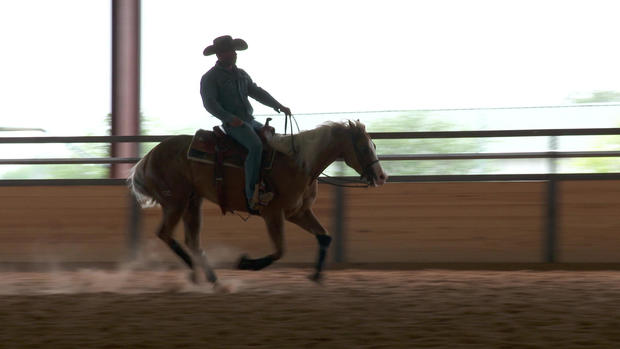

Leave a Reply